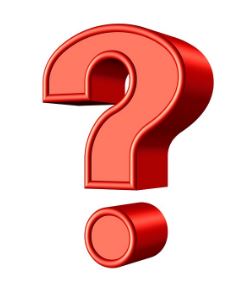 I activated my Goodreads author account and the Goodreads bot sent me some questions to answer. Hey I put in the time, so I might as well post them here:
I activated my Goodreads author account and the Goodreads bot sent me some questions to answer. Hey I put in the time, so I might as well post them here:
Even as the details of my grandfather’s life evaporated from the reservoir of human memory, my questions about him grew more numerous and insistent. I couldn’t explain why it had never occurred to me that my desire to become a writer, or the fact that I had, to some extent, succeeded in that rather ludicrous ambition, might have something to do with my heritage, and specifically my grandfather. If anyone ever asked me why I wanted to write, I remembered a moment in an eighth-grade English class poetry section when the teacher chose my poem to read, and my chattering, snoozing classmates actually sat up at their desks, stopped talking, and listened. But suddenly, a half century tardy, I remembered that, around the time I was learning to read, I would corral a tiny portable typewriter—a functional toy (and who gave their five-year-olds typewriters as toys?)—roll in a sheet of crisp white paper, and attempt, letter by letter, to copy the text from The Cat in the Hat, mesmerized by the idea that by assembling words together, one typed letter at a time, one could actually create that magical thing called a book.
When I did the math in my head, I realized that this unusual childhood literary fetish would have coincided perfectly with the moment of my grandfather’s maximum fame. Could I really believe it was unrelated? Had I been predisposed by nurture or nature, or simply by imitation, to tie my identity to the written word? Could so complex a skill as writing possibly be passed down in Grandpa’s DNA? Could it be mere coincidence that my most fervent dreams of accomplishment were precisely those things my grandfather in fact accomplished?
I had only too late considered the possibility that I might have been formed or even influenced by the abilities, proclivities, or eccentricities of my near and distant forbears after the firsthand sources of knowledge about them had forever vanished.
Who arrives at maturity without experiencing that regret? Why, I wondered, do most of us have these dual and conflicting tendencies, resisting our genealogical past as if it were an existential threat, yet ultimately pining to connect with it, even as it vanishes before our eyes?
Suddenly, questions about the past, your past, and your family’s past begin to flood in, questions that could have been so easily, or at least profitably, answered during the lifetimes of your parents or their parents, but have become literally unanswerable, lost forever behind the impenetrable veil of death.
Tracing one’s lineage, a persistent psychological impulse through the ages, has also become a cultural mainstay. A 2013 Time magazine story called genealogy the second most popular American hobby after gardening, and the second most visited category of websites after pornography. Popular reality TV shows are filled with genealogical sleuths digging through crumbling registers and handwritten census documents. The portraits they manage to draw with great effort, even when they make lucky finds, are mere outlines providing in the end little more than ancestral stick figures.
I realized I had an advantage, a big advantage—if not unique, at least exceedingly rare: in the Library of Congress of the United States, which happened to stand less than twenty-five miles from my home, was a room stacked with 158 boxes filled with 50,000 items; countless pages of indexed correspondence, contracts, manuscripts, photographs, journals, tax returns, paraphernalia, and even an unpublished autobiographical novel—all of it by or about my grandfather. This vast cache—collected because a committee at the Library in the 1950s determined that my grandfather represented a “typical American writer”—was supplemented by the forty-some books that he had published, including at least two autobiographies, as well as a memoir about him written by my uncle—almost none of which I had ever read.
What secrets, what forgotten calamities and unremembered triumphs, what surprising revelations and shocking truths could be pried from those cardboard file folders, all that slowly disintegrating cellulose and black ribbon ink? Was it possible, forty years after his death, that I could get to know my grandfather, not as a teenager might remember a sometimes garrulous old man, but as a contemporary could come to know a living, breathing intimate? More than an intimate—someone whose blood ran in mine, whose most primal makeup mixed in quarters to make me who I am. In learning about my grandfather’s life, what would I come to discover of my own? What would I gain from studying the minute realities of the history of a man from a now distant era to whose life and mine bore such obvious parallels? What could I learn about writing from my grandfather’s mastery of words, his huge success, and his ultimate failure?
And what would that tell me about why any of us care about our ancestors? Are we blank sheets of paper, waiting to write our own stories? Or are we merely appendixes to lives already lived and largely forgotten?
Speak Your Mind